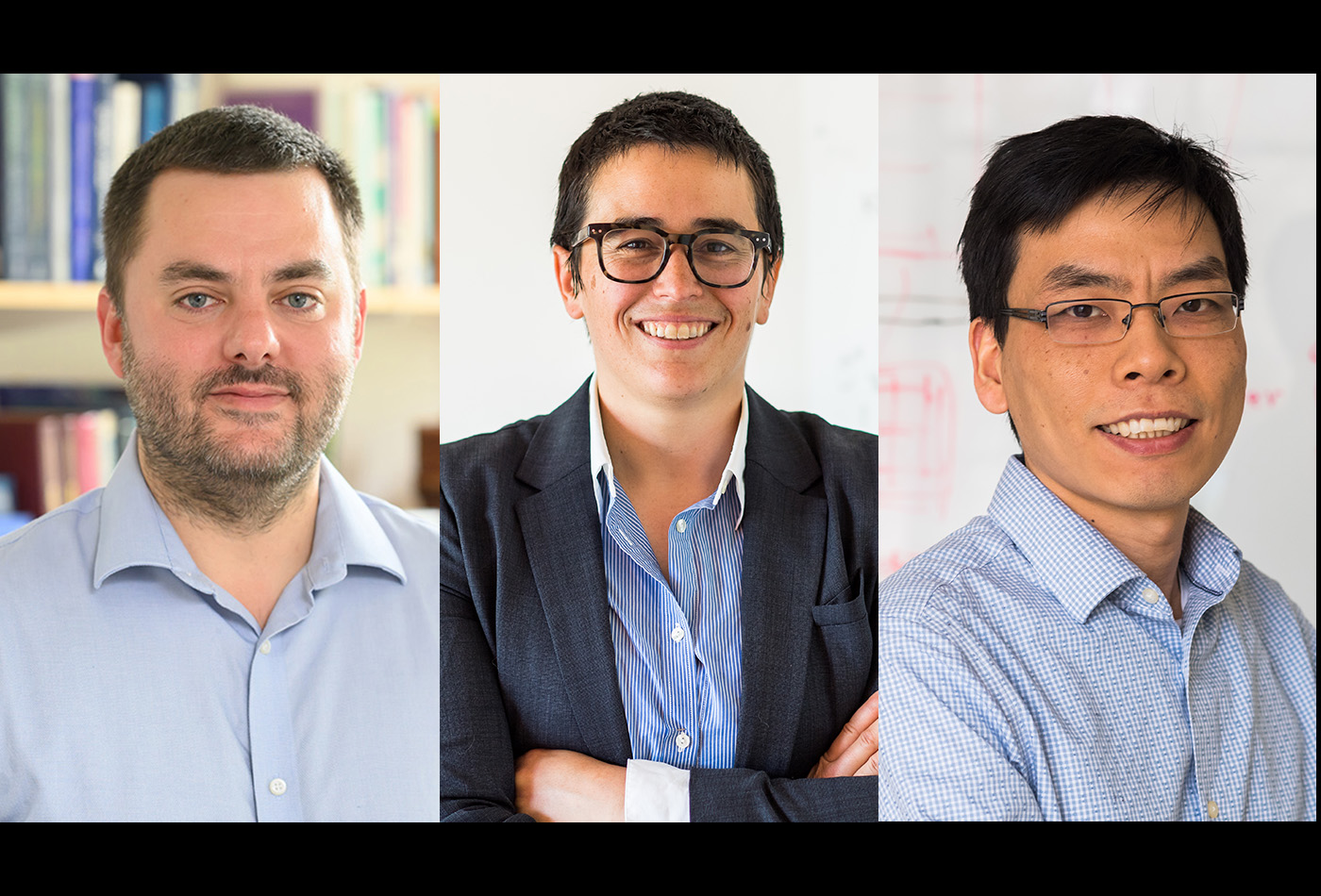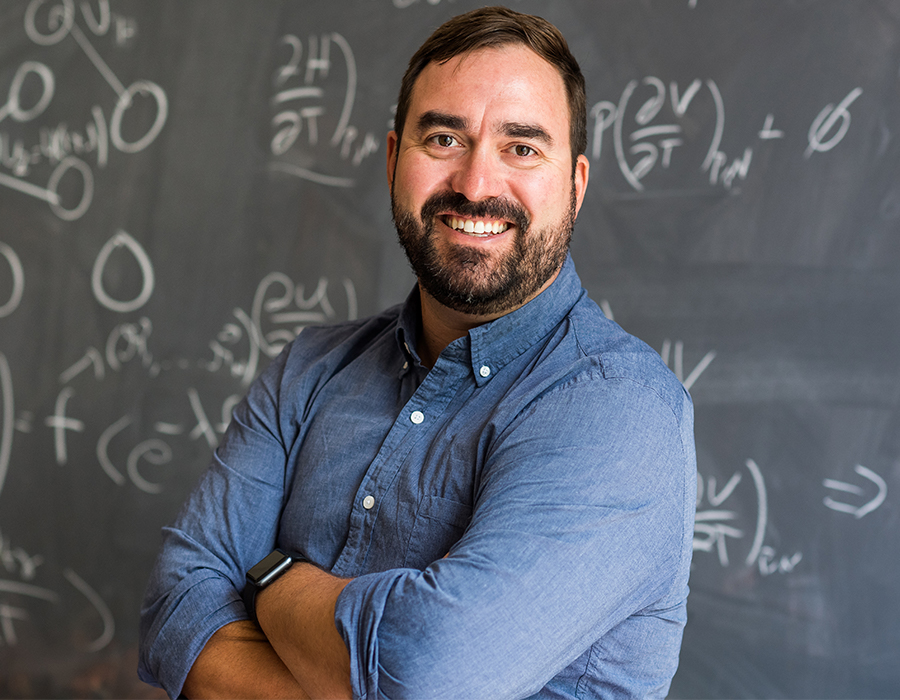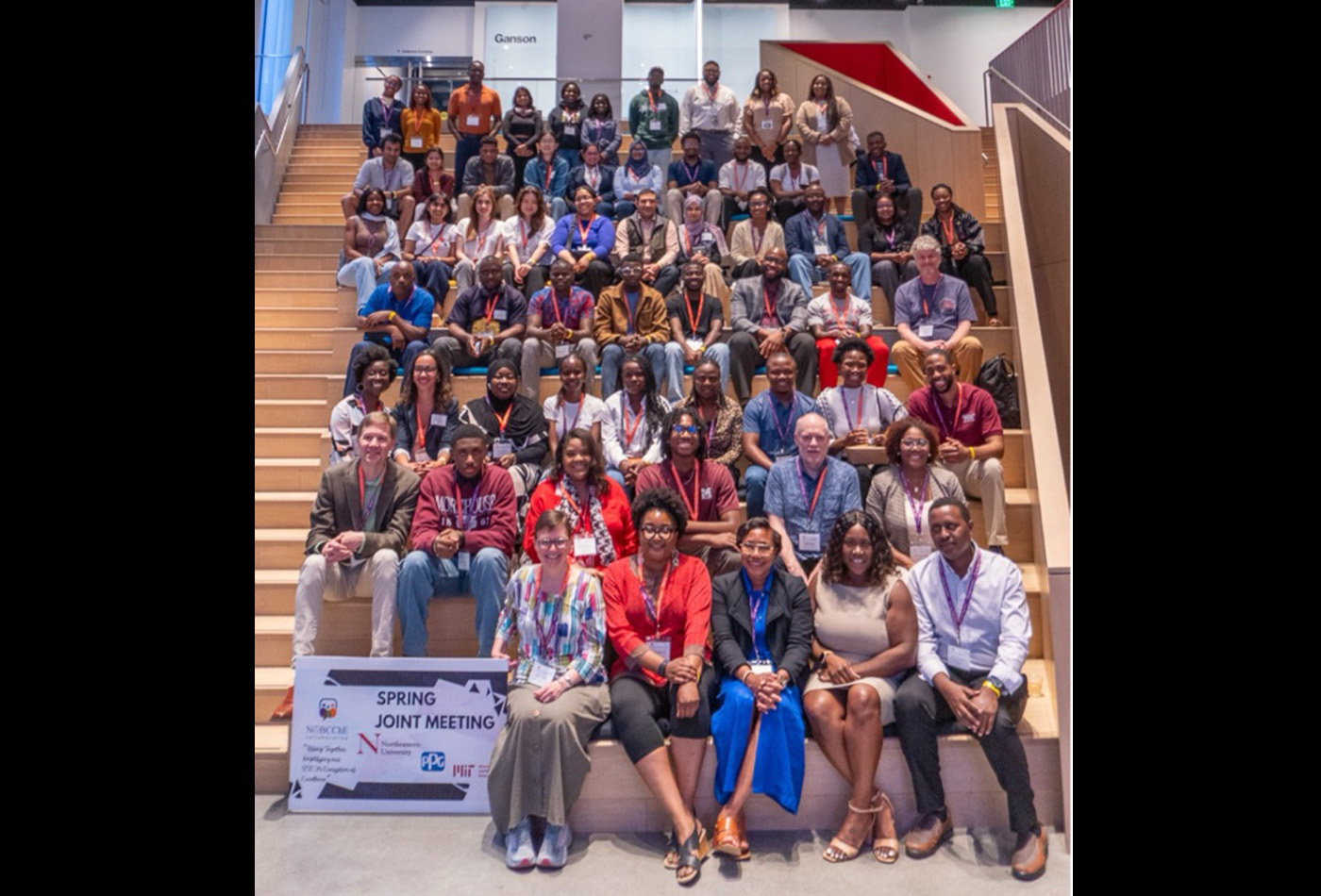Suess, Wendlandt, and Zhang earn Tenure
Professors Dan Suess, Alison Wendlandt, and Bin Zhang have been promoted to Associate Professor with Tenure effective July 1, 2024.
Associate Professor Daniel L.M. Suess, Associate Professor Alison Wendlandt, and Pfizer-Laubach Career Development Associate Professor Bin Zhang have all been promoted to Associate Professor with Tenure, effective July 1, 2024.
Suess graduated from Williams College in 2007, earning a bachelor’s degree in Chemistry and English, and went on to obtain his PhD in inorganic chemistry from Caltech. Following postdoctoral work in the laboratory of Professor R. David Britt at the University of California – Davis, Suess joined the Chemistry faculty in 2017. He was is a recipient of a Sloan Research Fellowship and the 2024 ACS Inorganic Chemistry Lectureship Winner. The main objective of the Suess Lab is to understand the molecular chemistry that underlies global biogeochemical cycles, with the ultimate goal of deploying this knowledge to improve human health and positively impact the environment.
Wendlandt received her B.S. from the University of Chicago, her M.S. from Yale University, and her Ph.D. from the University of Wisconsin-Madison. Following a postdoctoral fellowship at Harvard University, she joined the MIT Chemistry faculty in 2018. Research in the Wendlandt Group focuses on the development of selective, catalytic reactions using the tools of organic/organometallic synthesis and physical organic chemistry. She was recently awarded the Camille Dreyfus Teacher-Scholar Award.
Zhang received his B.S. from the University of Science and Technology of China and his Ph.D. from the California Institute of Technology. Following a postdoctoral fellowship at Rice University, he joined the Chemistry faculty in 2016. The Zhang Lab aims to build a global framework of the human genome that connects its sequence with structure and activity, and to enable quantitative and predictive modeling of genome structure and function.





